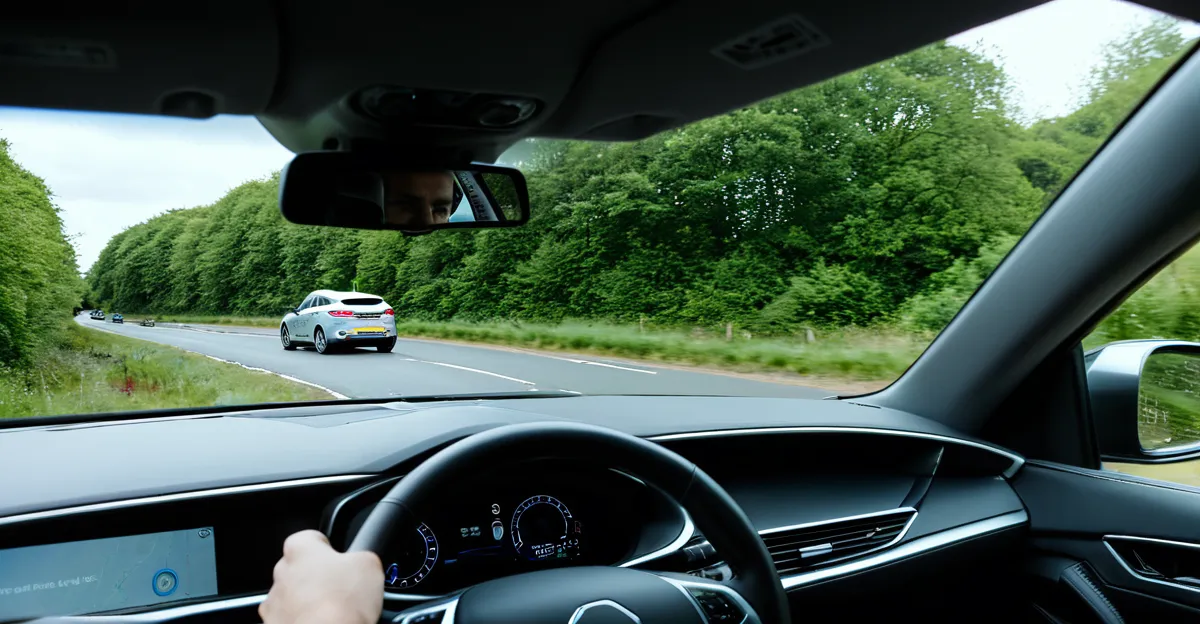UK Government Policy and Regulatory Developments
The UK government has established a clear policy framework to support the safe and systematic integration of autonomous vehicles. Current UK autonomous vehicle legislation focuses on enabling trials while ensuring rigorous safety and liability standards. For example, regulations permit testing of autonomous technology on public roads under strict oversight to gather data and build public trust.
Key regulatory updates include proposals to clarify how liability is assigned when autonomous systems are in control, which is essential for widespread adoption. The government is advancing plans to incorporate autonomous vehicles into the legal system by updating the Vienna Convention on Road Traffic rules as they apply domestically. This ensures that UK autonomous vehicle legislation aligns with international norms while allowing cutting-edge innovation.
Also read : How is the UK automotive sector fostering innovation through partnerships?
Official timelines anticipate phased legalisation, with support frameworks evolving up to 2030. During this period, government policy emphasizes enhancing infrastructure, such as smart road systems, and developing comprehensive insurance regulations to address new liability challenges. These proactive measures signal the UK’s intent to remain at the forefront of autonomous vehicle deployment by balancing innovation with safety and public acceptance.
In summary, government policy and regulatory updates in the UK demonstrate a progressive approach: enabling trials, refining safety regulations, and setting clear timelines for legalised use. This creates a stable yet adaptable environment encouraging manufacturers and developers to innovate while ensuring public protection.
Also read : What are the prospects for UK automotive exports in a global market?
Technological Advancements and Innovation
The UK has positioned itself at the forefront of UK AV technology, thanks to extensive autonomous vehicle trials and innovation initiatives. Several high-profile pilot projects operate across the country, using specially equipped zones where autonomous systems can be tested under real driving conditions. These trials provide invaluable data to refine sensor accuracy, decision-making algorithms, and vehicle control systems critical to safe deployment.
Research centres affiliated with leading universities are pivotal to advancing autonomous technology. They focus on areas such as machine learning optimization, vehicle-to-infrastructure communication, and ethical AI decision frameworks. Collaboration between academic institutions, tech companies, and automotive manufacturers accelerates progress by combining theoretical research with practical testing. For example, joint ventures have produced breakthrough sensor designs that improve detection in diverse UK weather and urban settings.
Innovation also benefits from government-backed funding schemes, aiming to leverage the UK’s expertise in robotics and artificial intelligence. This support enables startups and established firms alike to trial new software platforms or hardware components without excessive financial risk. Ultimately, these efforts contribute to a comprehensive ecosystem where autonomous vehicle trials foster continuous improvement and integration readiness.
In summary, UK-based autonomous vehicle trials and innovations exemplify how concerted collaboration drives technological advancement. They establish a solid foundation for translating research into safe, scalable AV solutions fitting the complexities of UK roads and compliance with evolving regulations.
Societal and Economic Impacts
Understanding the economic impact UK autonomous vehicles induce is vital, as this technology promises substantial benefits across multiple sectors. Autonomous vehicles can reduce operational costs in transportation and logistics by lowering labor expenses and improving fuel efficiency through optimized driving patterns. This transformation is expected to stimulate growth in industries such as manufacturing, tech development, and smart infrastructure, generating new business opportunities and investment.
The social change driven by autonomous vehicles will reshape how people perceive mobility. Improved road safety stemming from reduced human error enhances public trust, while increased accessibility can benefit those unable to drive, including elderly and disabled populations. However, shifts in public attitudes depend heavily on continued transparent communication regarding safety and data privacy, which influences acceptance and adoption rates.
Employment impacts are significant within the context of employment autonomous vehicles bring. While automation may displace certain driving jobs, new roles in vehicle maintenance, data analysis, and software development will emerge. Retraining initiatives are critical to prepare the workforce for this transition, ensuring economic resilience and social stability.
In summary, the societal and economic footprints of autonomous vehicles encompass:
- Boosting the UK economy through innovation and efficiency gains
- Facilitating social inclusion and enhanced safety perceptions
- Transforming employment landscapes and necessitating strategic workforce adaptation
Challenges and Barriers to Adoption
Navigating the barriers to AV adoption UK entails addressing a complex mix of technical, infrastructural, and legal issues that impact the seamless deployment of autonomous vehicles. One primary hurdle lies in ensuring safety within diverse real-world environments encountered across UK roads. Autonomous systems must reliably interpret unpredictable scenarios such as variable weather, complex traffic patterns, and pedestrian behaviours to meet rigorous safety expectations. This challenge requires continuous refinement of sensor technologies and algorithmic decision-making, validated through extensive trials.
In terms of infrastructure needs, current roadways and urban landscapes were not originally designed for fully autonomous operations. Upgrading to smart infrastructure—incorporating vehicle-to-infrastructure communication, advanced signalling, and dedicated AV lanes—remains an essential step. Urban planning must evolve to integrate these technologies without disrupting existing traffic flows or accessibility. Such infrastructural investments are costly and demand coherent policy strategies aligned with government frameworks.
On the legal front, unresolved questions about liability, insurance, and regulatory compliance present significant obstacles. UK autonomous vehicle legislation continues to evolve, but gaps persist in determining responsibility during system failures or collisions, creating insurance complexities. Ethical concerns, such as decision-making in unavoidable accidents, also pose challenges that require inclusive policy discourse. These considerations highlight the necessity for comprehensive government policy and regulatory updates that can adapt to rapid technological change while safeguarding public interests.
Ultimately, overcoming these challenges is crucial for unlocking the full potential of autonomous vehicles in the UK, balancing innovation with public safety and trust.




